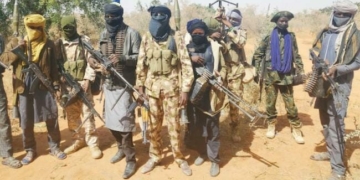- Civil society groups urge the Nigerian government to establish strict penalties for attacks on schools, emphasizing the need for safety legislation
- The proposed Safe School Declaration bill aims to protect educational institutions, mandating investigations and penalties for those who commit attacks
Civil society groups and education experts have called on the federal government to work with the National Assembly to establish strict penalties for those responsible for attacks on schools and other educational institutions in Nigeria. The recommendation was made on Wednesday in Abuja during an expert meeting to validate the draft legislation on the Safe School Declaration (SSD) bill for the domestication of the National Policy on Safety, Security, and Violence-Free Schools (NPSSV-FS).
The meeting was organized by the Women Advocate Research and Documentation Centre (WARDC) in collaboration with the National Human Rights Commission (NHRC), Syndicate in Supporting Women and Children Initiative (SISWACHI), West Africa Network for Peacebuilding Nigeria Chapter (WANEP), and Riplington Education Initiative (REI).
Dr. Abiola Akiyode-Afolabi, the founding Executive Director of WARDC, emphasized the need to transform the Safe Schools Declaration from a dialogue involving the Federal Ministry of Education, Federal Ministry of Finance, civil society organizations (CSOs), and emergency responders into a matter of public concern and participation.
She noted that the Safe Schools Declaration has not been fully implemented, and many schools nationwide fail to meet the standard protocols outlined in the SSD. “Significant progress cannot be made without strong government leadership at both national and state levels, robust community engagement, involvement from school administrators, community groups, women’s organizations, the media, and the public sector,” Akiyode-Afolabi stated.
In 2022, the Federal Government launched a N144.8 billion Safe Schools Financing Plan to be implemented from 2023 to 2026. This plan aims to complement the NPSSVFS and its implementing guidelines adopted in 2021. Akiyode-Afolabi highlighted that the proposed bill includes provisions prohibiting attacks or destruction of any school or learning institution during armed conflict and mandating the government to investigate and prosecute offenders.
One of the bill’s key provisions is that “any person or group who attacks or destroys a school or its facilities commits an offense and, upon conviction, will be liable to 10 years of imprisonment and a fine equal to the cost of restoration, rehabilitation, or rebuilding of the school.”
The Executive Secretary of NHRC, Dr. Anthony Ojukwu, cited past incidents of school attacks in Chibok, Dapchi, Kaduna, Lagos, and other parts of Nigeria. He pointed out that Nigeria signed the Safe Schools Declaration in 2019, committing to protecting education from attacks even during conflicts in response to these alarming trends. He stressed that safeguarding schools should be the government’s responsibility and a collective responsibility of all Nigerians.
The Minister of Education, Prof. Amman Tahir, represented by Dr. Uche Onwuama, a Director in the Federal Ministry of Education, reiterated the government’s commitment to ensuring the safety of all schools in Nigeria through legislative and judicial measures.










Discussion about this post